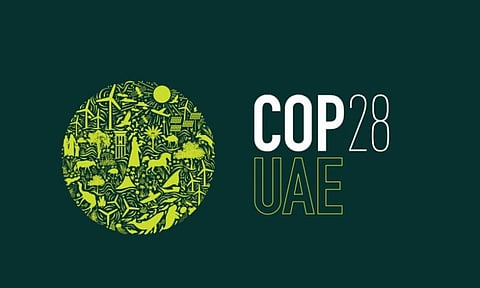
New Delhi- COP28 is currently taking place in Dubai, where world leaders have gathered to prepare for climate change. At the conference, India chose not to commit to certain pledges to reduce carbon emissions. They refrained from endorsing agreements that promote the increased use of renewable energy and ending investments in coal. Additionally, India declined to support an agreement that calls for reducing pollution in the health sector. Some view this as a response to Western powers, suggesting India's decision may be a way of asserting itself against those who often make significant geopolitical decisions while prioritizing its indigenous ideas.
The Mooknayak spoke to Professor Vipin Vyas, from Barkatullah University in Madhya Pradesh. He said, “India is trying to take a lead against climate change at international forums. The country is trying to become a representative for the global south.”
“India is making serious efforts against the same. We recently started the LiFE Initiative and the Hydrogen Mission. We are working on ourselves. But when we consider international treaties, they are mainly obligatory situations. They often have homogeneous strategies for every nation, which at times does not make sense logically. Every country and its population are different, so the strategies cannot be the same. Especially when we talk about India, which is a middle-class economy with diverse groups of communities. So, we need to take a thorough look at the intricacies to make sure they do not affect the GDP or the immediate missions that we have.”
At the 2021 UN Climate Change Conference (UNFCCC COP26), India announced Mission LiFE, to bring individual behaviours to the forefront of the global climate action narrative. LiFE plans to use social networks to influence what people think is normal when it comes to the environment. They want to build a global community called 'Pro-Planet People' (P3) who are committed to living and promoting eco-friendly lifestyles. Through P3, LiFE aims to create a supportive community that encourages green habits to sustain themselves. The Hydrogen Mission will identify and develop regions capable of supporting large-scale production and/or utilization of Hydrogen as Green Hydrogen Hubs.
Talking about the unfair interventions, the professor said, “Global conferences are more dependent on the geopolitical climate than the actual climate. The global south often does not get to have an equal say compared to the north. International frameworks cannot put all the nations in the same boat. Already developed economies have less to lose if the terms do not turn out the way everyone imagined.”
India, the most populated country, depends a lot on coal for its energy. But it's tough for India to reduce its pollution to zero. Because its main goal is to decrease poverty, and that means using more energy. In 2022, India was the third-biggest producer of carbon emissions in the world, making up 7.3% of the pollution. But here's the thing: there are 1.43 billion people in India, making up 18% of the world's population. Each person in India produced way less pollution than in the United States or Qatar.
The professor said, “We produce less carbon per capita than most so-called developed countries. We also have a lot of natural resources for carbon offset, a good number of green belts for carbon sequestration. We do not have a bigger carbon footprint than the west.”
Even though India's living conditions are not as good as in the United States or Qatar, with 210 million people in poverty according to the United Nations, India thinks it needs coal—a cheap fuel that's easy to find in the country—to grow its economy. In 2022, 73% of India's electricity came from coal. And just this November, India said it plans to add 80 gigawatts of new coal power by 2032.
India’s domestic goals are in line with its self-imposed 2070 deadline for reaching net-zero emissions.
Also Read-
You can also join our WhatsApp group to get premium and selected news of The Mooknayak on WhatsApp. Click here to join the WhatsApp group.